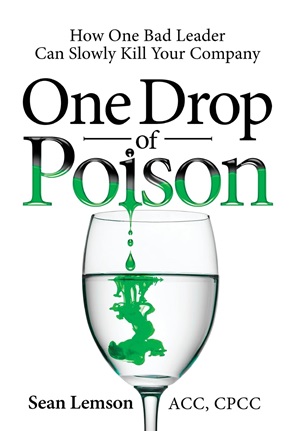“Our first stop is unpleasant but necessary. Let’s get started,” writes Sean Lemson, ACC, CPCC in his new book, entitled One Drop of Poison: How One Bad Leader Can Slowly Kill Your Company. The book’s subtitle is indicative enough of what the core topic of the read is going to entail. But what’s a surprise for both the book’s target and indirect audience bases is Lemson’s willingness to entertain. He’s confident enough in what he writes that he can adopt an informal, affable manner when communicating the core ideas to the reader.
MOTIVATED OUTCOMES: https://www.motivatedoutcomes.com/meet-the-founder
You have this sense he’s genuinely having fun while doing this, and as a result the reader can too. This proves especially paramount given the fact the topic of the book already has a depressingly familiar area. Toxic leadership has become one of the defining issues of the current, and even postmodernist workplace models. By making the rectification strateg(ies) so clear, Lemson makes the usual but considerable something easily redeemed. “Bad leadership spreads through hiring and promotion, but it also spreads through example and culture. Bad leaders cause others to raise their defenses and become less cooperative.
After this has been going on for some time, it becomes ‘the way things are here’ or ‘that’s just the [insert company/team name] culture.’ In these environments, even leaders who are usually insightful and caring can become self-preservationists. They must be careful whose feet they step on and keep the enemy list low and deliberate. They may intuitively want to care for the employees in their charge, but office politics and political survival becomes their main job,” he writes.
reader something of a simultaneous roadmap and classification model of different toxic leader types, Lemson zooms in on the psychological intrigue angle to boot. It’s not something one would expect from a book of this nature or genre, but adds that sense of zest along with the humor. By magnifying an unusual dimensionality of the issues at play, he’s able to make the book appealing in a whole new level to consumers everywhere.
One of the most striking passages in this vein is Lemson’s analysis of the toxic leadership profile of the Chess Master. “The Chess Master is a leader who believes that leadership is a position of control. Those who have achieved it believe they have earned the right to have and hold special information and knowledge, which is kept from employees until it’s time for them to know.
BUY THE BOOK: https://www.amazon.com/One-Drop-Poison-Leader-Company/dp/1733004238
This belief that leadership is privileged and hierarchical can sometimes be culturally influenced,” he states. “…The Chess Master treats employees like chess pieces on a board. They believe that their employees have nothing of value to add to big team decisions about topics such as processes, goals, team formation, team membership, etc. They meet secretly with a trusted inner circle to decide the fates of their employees in these areas, and only after they have made up their minds, do they pop out and announce the changes to the affected team(s). Chess Master leaders are usually quite surprised at the pushback and lackluster commitment they get from their employees over these new plans.
They’re caught off guard because it doesn’t occur to them that their teams don’t think of them as the legends they think they are. The morale and engagement on a Chess Master’s teams is often quite low.”
Cyrus Rhodes



























